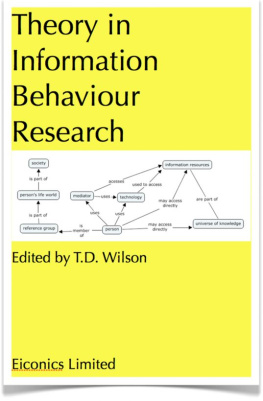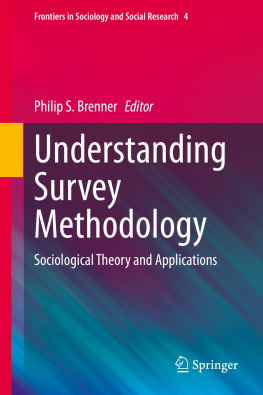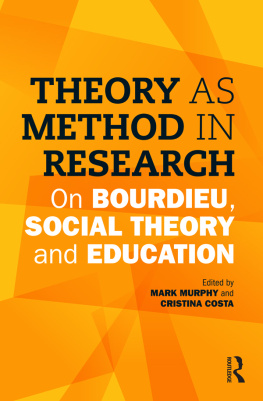SOCIOLOGICAL PRACTICE
Sociological Practice
Linking Theory and Social Research
Derek Layder
Derek Layder 1998
First published 1998
All rights reserved. No part of this publication may be reproduced, stored in a retrieval system, transmitted or utilized in any form or by any means, electronic, mechanical, photocopying, recording or otherwise, without permission in writing from the Publishers.
 | SAGE Publications Ltd
6 Bonhill Street
London EC2A 4PU
SAGE Publications Inc.
2455 Teller Road
Thousand Oaks, California 91320
SAGE Publications India Pvt Ltd
32, M-Block Market
Greater Kailash I
New Delhi 110 048
|
British Library Cataloguing in Publication data
A catalogue record for this book is available from the British Library
ISBN 0 7619 5429 5
ISBN 0 7619 5430 9 (pbk)
Library of Congress catalog card number 9860952
Typeset by Mayhew Typesetting, Rhayader, Powys Printed in Great Britain by Biddles Ltd, Guildford, Surrey
CONTENTS
LIST OF TABLES
LIST OF FIGURES
PREFACE
My objectives in this book are twofold. First, to provide an introduction to approaches to the theory-research relation, and secondly, to develop an alternative which focuses on generating social theory in conjunction with ongoing empirical research. I call this alternative adaptive theory because it combines the use of prior theory to lend order and pattern to research data while simultaneously adapting to the order and pattern contained in this emerging data. Although I describe it as an alternative, it also shares and builds upon key aspects of existing traditions in social theory and method. In this respect it is complementary to other approaches and hence may be employed alongside them. Adaptive theory is research-based but is related to and consistent with my theory of social domains outlined in Modern Social Theory (1997). However, it also connects with, and in a certain sense grows out of, my work on research strategies (1993) and the philosophy of method (1990).
Several people have been associated with the genesis of this book. Early on Paul Secord provided much needed support for some of the embryonic ideas. More immediately Chris and Robert Rojek of Sage and an anonymous reviewer encouraged me to go forward with the book. In its draft form Alison Drewett went over the entire manuscript with a fine-tooth comb and made some telling and extremely useful interventions and suggestions. I have incorporated as many of these as possible. Similarly, Bob Carter read through the draft and made several important suggestions concerning amendments and possible inclusions. I must also thank Alison and Bob for the infectious enthusiasm with which they greeted the project and which undoubtedly fed into my own readiness to complete it. It goes without saying that none of the above people are in any way implicated in the shortcomings that this book may possess.
The final revisions of the book were undertaken while I was a Visiting Fellow in the Humanities Research Centre at the Australian National University, Canberra in JulyAugust 1997. I would like to thank the Centre, its staff and its Director, Graeme Clarke, for providing excellent facilities and support. During my stay at the ANU I greatly enjoyed the company of Alice Bullard, Jack Barbalet, Margot Lyon, and Doug Porpora. I also enjoyed and appreciated my visit to the Ashworth Centre for Social Theory, Melbourne University, at the invitation of the Director, John Rundell. Thanks are also due to Kate Spratley for her help and support.
Derek Layder, December 1997
CHAPTER 1
THE LINKS BETWEEN THEORY AND RESEARCH
This book is aimed at social researchers who wish to incorporate more theory in their research (either by using it as a guide or by attempting to generate it from data) and at social theorists who wish to give their ideas extra weight by grounding them more firmly in empirical evidence and data. To this end, I examine the most common links between social theory and social research with a view to outlining a new approach (adaptive theory) which attempts to serve the needs of both theorists and empirical researchers. Adaptive theory endeavours to combine the use of pre-existing theory and theory generated from data analysis in the formulation and actual conduct of empirical research. I believe that this kind of approach challenges the gap that has grown up around those who specialize in social theory on the one hand, and those who are specialists in data collection and empirical research on the other.
With regard to these general aims there are two sorts of audience that I attempt to address in this book. First, within the discipline of sociology the above-mentioned gap between theory and research is particularly marked and I believe that it is an obstacle both to the development of sociology as a discipline and to the possibility of the development of a cumulative body of theoretically informed knowledge. Thus my widest objective is to attempt to provide some ways in which the gap may be overcome and the connections between theory and research made stronger. I shall say more about these matters later in this chapter so I shall not expand upon them at this juncture.
However, it is important to say that, apart from clearing a path through the rather confusing maze of theory-research links, this book attempts to develop an original approach to theorizing in social research. As I have indicated, what I call adaptive theory challenges some entrenched sociological orthodoxies about research methodology as well as about the uses and nature of social theory. In this sense it offers what can only be called a new set of rules of sociological method without insisting that previous practices are somehow outmoded or worthless. Thus, adaptive theory attempts to capitalize on some of the strengths of existing approaches by expanding their range at the same time as providing a new approach and a group of alternative strategies which move beyond the established range of orthodox approaches.
However, my remarks are also addresssed to an even wider audience of social researchers who come from a variety of different disciplines and who are perhaps not aware of, or au fait with, the sort of general social theory that I have in mind here, and thus are not conscious of the gap between theory and research that I identify. Nonetheless I believe that this audience will be more aware of other kinds of problems which surround the relationship between theory and social research. In particular, I think that many social researchers often experience a lack of guidance as to how to deal with theory, how to use it and how to develop it from the data they unearth during their research. This is because methodology texts and others which describe how to conduct social research typically either do not address the issue of theory and theorizing directly or they take it for granted. Also, even where there is some minimal guidance provided, very often textbooks utilize a very limited range and number of exemplars and perspectives with regard to the question of using or generating theory in social research. In this respect this book aims to expand the range of possibilities for those engaged in social research who either have little training in theoretical matters or who crave for alternative approaches.







